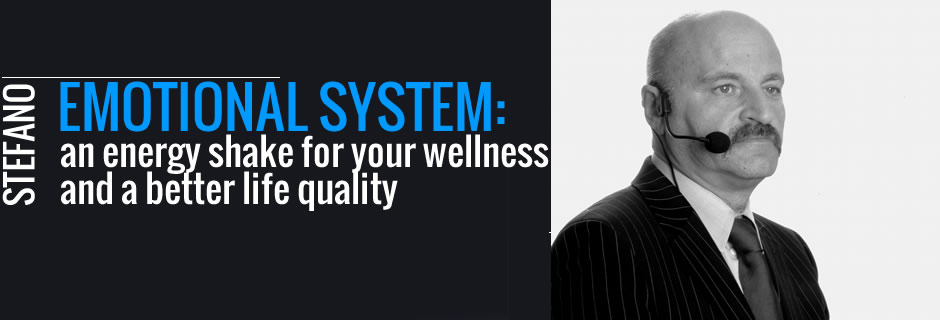ANALOGIC PHILOSOPHY
The Analogic Philosophy of Stefano Benemeglio gives credit to the unconscious instance a real emotional intelligence that acts on the basis of its key principle: analogy. This prospective is strictly linked to what we call “the real emotion of the individual”, understood as the whole of the anxieties lived in the past and in the present that appear connected amongst themselves thanks to the mechanism of analogy. In order to understand this statement it is enough to analyse the anxieties themselves: they are deemed the reason why the individual is not able to reach serenity and happiness so much yearned for, precisely because he is unable to silence the past and the emotions connected to it.
The analogy, recalling the concept of repetition and similarity, substantially indicates the ways through which the unconscious repeats and associates to one emotional state elements or events that are different from each other.
From this supposition we can state that Analogic Philosophy is different from clinical Philosophy as, although they have in common the acceptance of the existence of an unconscious dimension, the latter concentrates on the symptom (that is the emotional alteration) while the former focuses on the emotional source that causes the symptom itself. Therefore, more attention is placed on the process that has led to a certain event and the corresponding emotional perceptions, rather than on the way in which it happened and its relative consequences. Analogic Philosophy has the real emotions of the individual as its object, thus in its general and remote causes, it concentrates its attention on the three principles of Man that are considered non-negotiable: Freedom, Dream and Conscience.
Freedom, Dream and Conscience are principles that are in constant contrast amongst themselves, just as logic instance and emotional instance are. The extent of these contrasts leads the individual to face with difficulty the choices, the conflicts and the problems that life puts in front of him; the main consequence of these last ones is discomfort and sufferance of the individual. In some cases the discomfort mentioned can be so bad that it can lead to a block of the actions, which condemns him to a life as a spectator rather than as main character. This kind of behaviour, in the view of the Benemeglio Analogic Philosophy does not take on the characteristics of the “dark evil”, term used in clinical Philosophy to indicate the presence of an illness (mostly depressive in nature), but rather as a state of unhappiness. From this there is one of the most important axioms of Analogic Philosophy: “you are not ill, you are only unhappy”.
This unhappiness is translated into an inability of the individual to manage the problems of daily life due to the insult to one of the three principles: Freedom, Dream and Conscience. They are in fact called non-negotiable principles. The insult is the offense to the dignity of Man/Male or to the Woman/Female, that is embodied in a real identity crisis with a relative incapacity to satisfy one’s needs, due to the obstacles considered insurmountable and refusals subjected to from the object to one’s desires.
It is only possible to break this vicious circle by learning to free oneself from one’s fears and wrong dominating ideas that afflict us, as this allows us to gain back our lost dignity.
The main objective of Analogic Philosophy is the search for happiness.
The concept of happiness proposed by Stefano Benemeglio through his philosophy is a concept wholly linked to the emotional world: as a matter of fact those who are able to pursue their dreams in total freedom and in peace with their own conscience are happy.
Following the principles of this philosophy means to adopt a lifestyle that recognises and elects to the role of director emotional instance rather than the rational one.
If Analogic Philosophy represents the whole of the principles and the epistemological bases that is the fruit of the studies and researches of Stefano Benemeglio, Analogyc Psychology represents its pragmatism.





